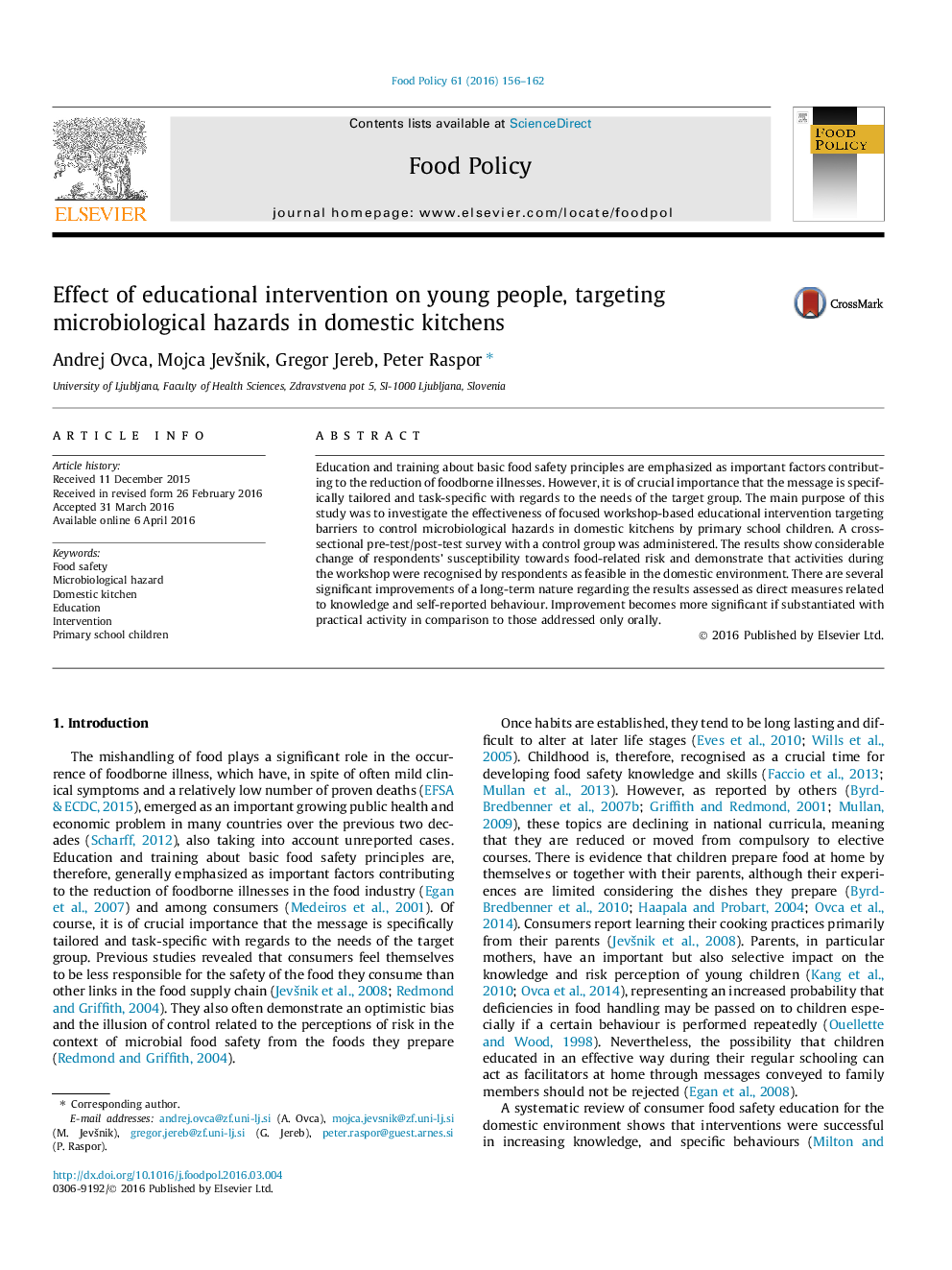| Article ID | Journal | Published Year | Pages | File Type |
|---|---|---|---|---|
| 5070237 | Food Policy | 2016 | 7 Pages |
â¢Awareness about microbiological hazards in domestic kitchen significantly rose.â¢Positive improvements of direct measures are of a long-term nature.â¢Improvements are more significant if substantiated with a practical activity.â¢The teaching style applied proved to be appropriate for the target group.
Education and training about basic food safety principles are emphasized as important factors contributing to the reduction of foodborne illnesses. However, it is of crucial importance that the message is specifically tailored and task-specific with regards to the needs of the target group. The main purpose of this study was to investigate the effectiveness of focused workshop-based educational intervention targeting barriers to control microbiological hazards in domestic kitchens by primary school children. A cross-sectional pre-test/post-test survey with a control group was administered. The results show considerable change of respondents' susceptibility towards food-related risk and demonstrate that activities during the workshop were recognised by respondents as feasible in the domestic environment. There are several significant improvements of a long-term nature regarding the results assessed as direct measures related to knowledge and self-reported behaviour. Improvement becomes more significant if substantiated with practical activity in comparison to those addressed only orally.
